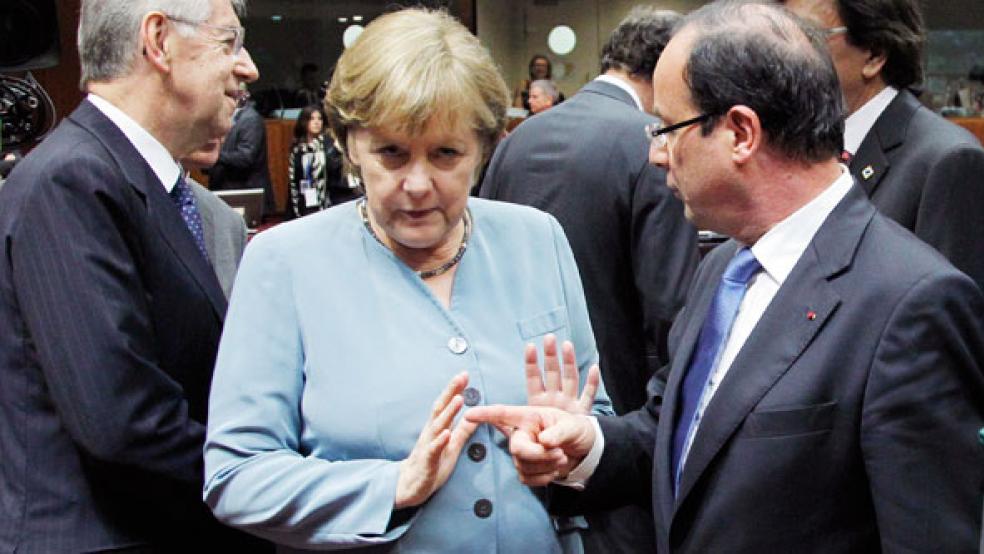Chancellor Angela Merkel won a landslide personal victory in a German election on Sunday, putting her within reach of the first absolute majority in parliament in half a century, a ringing endorsement of her steady leadership in the euro crisis.
Partial results put her conservative bloc - the Christian Democratic Union (CDU) and Bavarian Christian Social Union (CSU) - on 42.5 percent, which if confirmed would be their strongest score since 1990, the year of German unification.
RELATED: 'MAMA' MERKEL MAY WIN GERMANY BUT NOT EUROZONE
The outcome could give Merkel an edge of a few seats over the combined opposition in the Bundestag lower house for the first time since conservative Chancellor Konrad Adenauer achieved that feat in 1957. But she may still need a coalition partner for her third term when the final votes are counted.
"It's a super result," said Merkel, flashing a broad smile.
But the survival of her centre-right coalition with the Free Democrats (FDP) was in question, with the business-friendly party on 4.7 percent, shy of 5 percent mark needed to remain in parliament.
Adding to the uncertainty was a new eurosceptic party, the Alternative for Germany (AfD), which stood at 4.9 percent, just a whisper below the threshold needed to enter the Bundestag.
Support for the centre-left Social Democrats (SPD) stood at 26 percent, the environmentalist Greens were on 8 percent and the hardline Left party was at 8.5 percent. That was good for a combined score of 42.5 percent, roughly in line with the result of Merkel's conservatives on their own.
RELATED: EUROPE'S FINANCIAL FIX: A VICTORY FOR MERKEL AND LAGARDE
Short of her own majority and barring a late bounce for the FDP, Merkel will almost certainly have to enter coalition talks with the SPD, with whom she ruled between 2005 and 2009.
Negotiations could last months and a new government could adopt more leftist policies like a minimum wage and tax hikes for top earners.
"We won't be committing to any coalition this evening," SPD second-in-command Andrea Nahles said, reflecting deep resistance within the party to partnering with Merkel for the second time in a decade.
Some of Germany's European partners hold out hope that the SPD could push Merkel to soften her stance towards struggling southern euro states like Greece, but the chances of major shifts in policy are slim.
Merkel, the daughter of a Protestant pastor who grew up behind the Iron curtain in East Germany, is now on track to become the third post-war chancellor to win three elections, after her mentor Helmut Kohl and Konrad Adenauer.
With additional reporting by Annika Breidthardt, Sarah Marsh, Madeline Chambers, Sophie Duvernoy, Erik Kirschbaum and Gareth Jones, all of Reuters.




